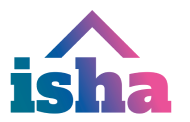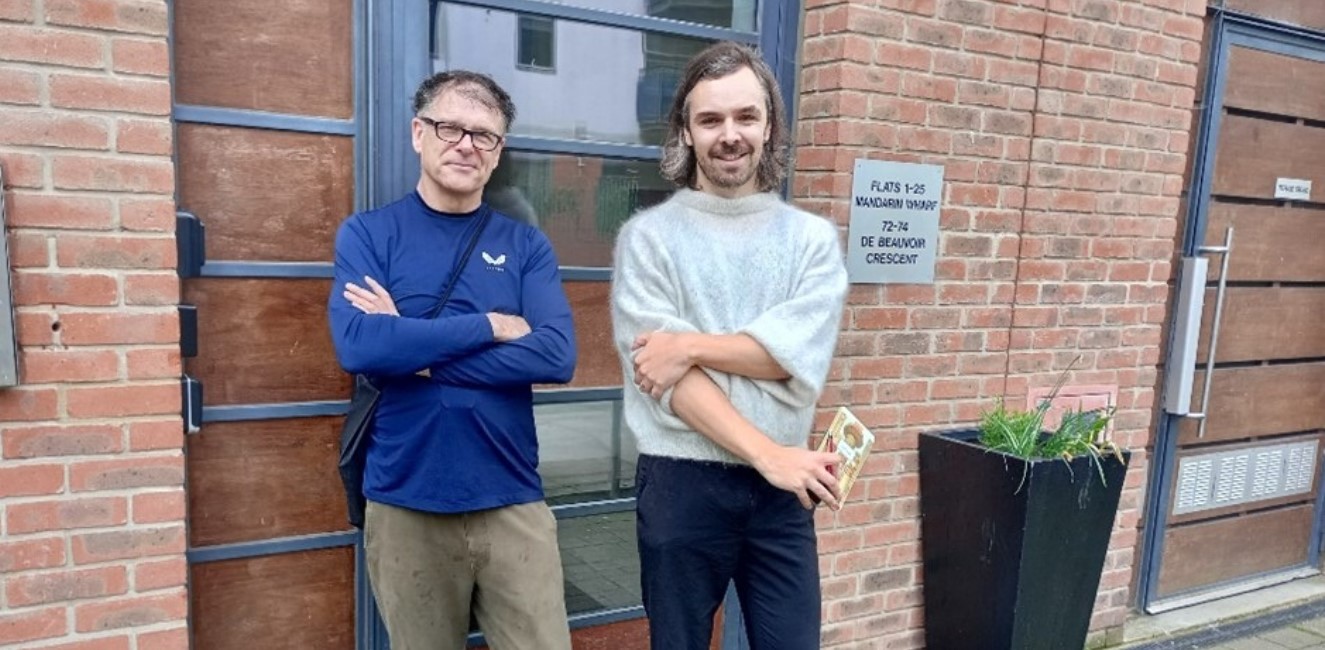This page sets out the main services we provide for shared owners and leaseholders. If you have any questions or cannot find an answer to your query, contact us on 0300 171 7300 or email HomeOwnership@isha.co.uk
News for shared owners
Download or print our policies. All policies are in the PDF format.
Frequently asked questions (FAQs)
As set out in your lease, your annual rent is reviewed with an increase of the retail price index (RPI) plus an additional percentage, usually 0.5 to 1%. Your lease will state the exact amount, when the increase should happen and which month’s index we use. This is also reflected in your annual rent review letter.
Service charges cover the cost of any communal services.
The most common communal services include grounds maintenance, cleaning, replacing light bulbs and fittings and electricity usage. The charges also cover the maintenance and repair costs of equipment within shared areas such as lifts, communal TV aerials, CCTV, electronic gates, door entry systems and fire equipment.
We use a variable service charge system to calculate service charges. This means we estimate the cost of each communal service and charge you your share of that estimate. These estimates are calculated using contractual information or by analysing past costs.
The method for charging service charges is set out in your lease.
The cost of providing a service must be shared fairly between all the flats in the building. To calculate your share of the cost, we split all the costs between the flats in the block.
In some cases where the flats are different sizes, the larger flats may pay more service charges.
To ensure you pay the actual cost of the service, we annually compare our estimated cost with the actual cost over the past year and adjust the charge to account for the difference.
We will inform residents within six months of the financial year's end whether the charge is more or less than the estimate.
This is called the annual service charge statement of accounts, and you should normally receive it in October. If, for some reason, we cannot send you this information by then, we will let you know.
We take readings on a regular basis, and, as such, our costs are more realistic, but there is still some fluctuation in prices. We also use an energy company that buys energy on the wholesale market, which helps reduce our costs.
An annual assessment must occur when a water supply is not directly connected to the main water supply and held within a storage tank. This is so we can monitor any possible risks to the people who use the water supply, such as exposure to bacteria like Legionella, and also ensure we take suitable precautions to comply with the Health and Safety Executive legislation.
Fire risk assessments (FRAs) assess the risk of a fire starting and the consequences of the fire and/or smoke.
It is a legal requirement to reduce the risk of fire, where practical, and to assist the person who produces the risk assessment for each block.
A comprehensive assessment is carried out every year.
The charges for the maintenance and repair of equipment shown on your service charge schedule are to ensure continuity of the service through regular maintenance checks and a prompt repair service.
If an item covered by the maintenance contract is not fixed within our targets, we will reimburse you for the service charge element. This will usually be paid into your rent or service charge account.
Shared owners and leaseholders pay for communal repairs through their service charge. The charge covers repairs to communal areas, such as carpets, manual gates, and communal garden equipment.
Tenants are not charged separately for communal repairs, as these costs are paid for from their rent. For shared owners, the rent payments only cover ISHA’s mortgage payments, so there is no contribution towards communal repairs as part of your rent.
Your charges should clearly indicate where the services are provided by an external management agent. Where the agent provides all the services, our management costs are reduced, and we will arrange for you to receive a copy of the charges they pass on to us.
The management fee covers the cost of working out and managing services to our leaseholders. It mainly includes:
- A proportion of the staff costs for the departments within ISHA who deliver services to you, such as neighbourhood management, customer accounts, rents and service charges, maintenance partnerships and procurement (this will depend on your type of lease and tenure; some departmental costs may not apply to you).
- Overheads include the cost of the offices, which includes utility and telephony costs, recruitment and training, insurance, and IT.
- Stationery, printing and postage.
- (Where applicable) The fee charged by the managing agent where the estate services (or part thereof) are not delivered directly by us.
A sinking fund is for major works to your block, which occur approximately every five to seven years. It includes things like painting window frames and internal areas, replacing fencing, hiring scaffolding, and contributing to future long-term works, such as replacing roofs in older blocks.
Unexpected major works are also charged from this fund when the work relates to the fabric of the building or the surrounding grounds. We maintain a sinking fund primarily for two reasons:
- To ensure that all occupiers contribute to major works, not just those who are in occupation at the time they are carried out.
- To spread the annual charges to assist with your budgeting. All reserve funds earn interest, which benefits leaseholders.
The costs are based on what we think it would cost to carry out the major works. We know that we will carry out the works every five to seven years, so we spread the estimates over that period. This way, we can build a fund to contribute to the work.
A sinking fund may not pay for all the work, as sometimes we find that extra work needs to be carried out. When this happens, we invoice you for the difference. For this reason, we regularly review the costs and what we plan to do over the next two years.
You may need to contribute towards a service charge and a long-term maintenance charge if, for example, your property is built on an unadopted road, which is a road that has been built as part of your development but isn’t the responsibility of the council to maintain.
As part of the original planning permission, we are responsible for looking after an unadopted road, which could also include lighting columns. We collect a service charge for the communal service provided for the road.
A long-term maintenance charge is collected for the reserve fund for any future proposed works on the road.
If ISHA holds the freehold, we pay for the buildings insurance. You do not need to buy your buildings insurance. However, you will need to obtain your own contents insurance.
If you have problems paying your rent, coping with debt, or want advice on welfare and benefits, contact us on 0300 131 7300 or email HomeOwnership@isha.co.uk.
More information
Get in touch with us if you have any questions about shared ownership or if you need more information, and our team will be happy to help.





